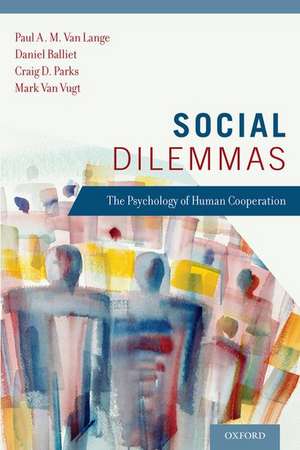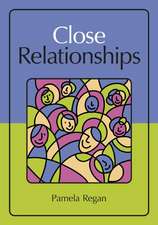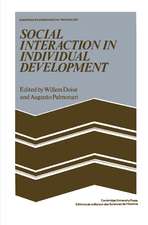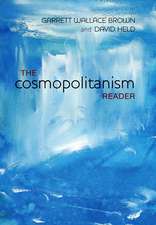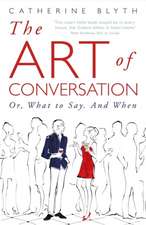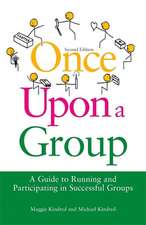Social Dilemmas: The Psychology of Human Cooperation
Autor Paul A. M. Van Lange, Daniel Balliet, Craig D. Parks, Mark Van Vugten Limba Engleză Paperback – 13 aug 2015
Preț: 271.67 lei
Preț vechi: 339.19 lei
-20% Nou
Puncte Express: 408
Preț estimativ în valută:
51.99€ • 54.08$ • 42.92£
51.99€ • 54.08$ • 42.92£
Carte tipărită la comandă
Livrare economică 03-09 aprilie
Preluare comenzi: 021 569.72.76
Specificații
ISBN-13: 9780190276966
ISBN-10: 0190276967
Pagini: 212
Dimensiuni: 150 x 231 x 15 mm
Greutate: 0.32 kg
Editura: Oxford University Press
Colecția OUP USA
Locul publicării:New York, United States
ISBN-10: 0190276967
Pagini: 212
Dimensiuni: 150 x 231 x 15 mm
Greutate: 0.32 kg
Editura: Oxford University Press
Colecția OUP USA
Locul publicării:New York, United States
Notă biografică
Paul Van Lange is Professor of Social Psychology and Chair of the Department of Social and Organizational Psychology at the VU University at Amsterdam, The Netherlands. Most of his research on human cooperation and trust is grounded in interdependence theory, through which he seeks to understand the functions of forgiveness, generosity, empathy, fairness, retaliation, competition, as well as general beliefs of human nature in various situations.Craig D. Parks is Professor of Psychology at Washington State University. His research focuses on cooperation and noncooperation, and reaction to non-normative actors, in mixed-motive situations. He also works as a consultant to energy companies in the Pacific Northwest on social psychological factors underlying resistance to energy conservation.Daniel Balliet is an Associate Professor in the Department of Social and Organizational Psychology at the VU University at Amsterdam, the Netherlands. Dr. Balliet's research applies experimental methods and meta-analytic techniques to study cooperation and conflict resolution. His research has examined theoretical perspectives on trust, incentives, social values, and forgiveness.Mark Van Vugt is Professor of Evolution, Work and Organizational Psychology at the Department of Social and Organizational Psychology at the VU University at Amsterdam, The Netherlands. His expertise is in evolutionary psychology, group dynamics, leadership, status, conflict and cooperation, and in applications of evolutionary psychology to societal issues such as business and management, environmental sustainability, water conservation, politics, war and peace.
